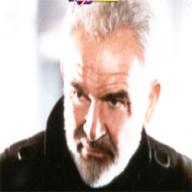我知道一個NOUN CLAUSE 可跟一主句, 例如:
How the thieves broke in is abvious.
Noun clause 係 "How the thieves broke in "
跟主句"is abvious"
但以下呢句就唔識解:
What a speaker assumes is ture or is known by the hearer can be described as a persupposition.
Noun clause 應該係 "What a speaker assumes"
跟主句" is ture or is known by the hearer "
再跟主主句" can be described as a persupposition"
我唔點解呢句得一個noun clause , 但兩個主句?
點解唔係What 之前加"That", 把"What a speaker assumes is ture or is known by the hearer"變成一個大noun clause
求指教
Noun Clause 問題
2015-03-24 11:31 pm
回答 (1)
2015-03-25 7:40 am
✔ 最佳答案
1. what = something that We can describe "something that ... " as a presupposition.
2. presupposition (noun) = something that someone thinks is true without proof (Yahoo dictionary)
We can describe "something that a speaker assumes is true or is known by the hearer" as a presupposition.
We can describe "what a speaker assumes is true or is known by the hearer" as a presupposition.
3. The object "what a speaker ...." becomes subject in a passive voice sentence.
"What a speaker assumes is true or is known by the hearer" can be described (by us) as a presupposition.
note: "by us" can be and is usually omitted.
2015-03-24 23:44:44 補充:
Both "something that ..." and "what ...." (in quotes above) are noun clause.
2015-03-24 23:53:34 補充:
Sorry, correction:
"something that ...." is a noun phrase.
2015-03-25 00:16:31 補充:
Grammar note:
In "something that ...." or "the fact that ...", "that ..." is a noun clause (also called content clause) functioning as a complement of the pronoun "something" or the noun "fact".
2015-03-25 14:21:03 補充:
You have wrong concept about noun clause.
例:How the thieves broke in is obvious.
"How the thieves broke in " is a noun clause functioning as the subject of the sentence.
"is obvious" 並非 主句
2015-03-25 15:10:20 補充:
This type of noun clause is also called "nominal relative clause", that is, a type of relative clause that contains the antecedent within itself.
what = the thing which, something which/that
how = the way which
why = the reason that
where = the place which
when = the time that
2015-03-25 15:47:48 補充:
There are two noun clauses combined with a conjunction "or" to form a single noun clause.
1. what a speaker assumes is true
2. what is known by the hearer
what a speaker assumes is true or (what) is known by the hearer
note: the second what is omitted
2015-03-25 16:13:26 補充:
what a speaker assumes is true = what is true, (that) a speaker assumes
~ noun clause modified by a relative clause with verbs such as think, assume, suppose, consider, etc
Ex.
I'll do what I think is right.
What I suppose Mary will do is beyond your imagination.
2015-03-25 16:34:18 補充:
1. "what I think is right" is the object of the verb "do".
2. "what I suppose Mary will do" is the subject of the sentence.
3. What I suppose Mary will do is what you have told me.
"what you have told me" is the subject complement.
收錄日期: 2021-04-15 18:51:58
原文連結 [永久失效]:
https://hk.answers.yahoo.com/question/index?qid=20150324000051KK00041

